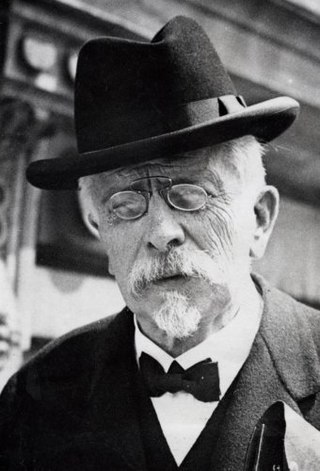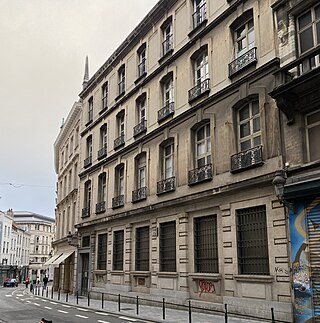The Congolese franc is the currency of the Democratic Republic of the Congo. It is subdivided into 100 centimes. However, centimes no longer have a practical value and are no longer used. In April 2022, 2,000 francs was equivalent to US$1.

Ruanda-Urundi, later Rwanda-Burundi, was a colonial territory, once part of German East Africa, that was occupied by troops from the Belgian Congo during the East African campaign in World War I and was administered by Belgium under military occupation from 1916 to 1922. It was subsequently awarded to Belgium as a Class-B Mandate under the League of Nations in 1922 and became a Trust Territory of the United Nations in the aftermath of World War II and the dissolution of the League. In 1962 Ruanda-Urundi became the two independent states of Rwanda and Burundi.
The Ruanda-Urundi franc was a currency issued for the Belgian mandate territory of Ruanda-Urundi in 1960–62 which continued to circulate within its successor states of Rwanda and Burundi until 1964. The currency replaced the Belgian Congo franc which had also circulated in Ruanda-Urundi from 1916 to 1960 when the Belgian Congo became independent, leaving Ruanda-Urundi as the sole Belgian colonial possession in Africa. With the independence of Rwanda and Burundi in 1962, the shared Ruanda-Urundi franc continued to circulate until 1964 when it was eventually replaced by two separate national currencies.
The Apostolic Vicariate of Kivu can refer to either of two vicariates of the White Fathers, a Catholic missionary society in the Latin Church of the Catholic Church. Both vicariates served lands around Lake Kivu during the early to mid 20th century. The first vicariate, from 1912 to 1922, served what are now Rwanda and Burundi. The second vicariate, from 1929 to 1952, served territory in the east of the Belgian Congo.

Burundi has issued postage stamps for national use since achieving independence on 1 July 1962. The country was formerly a part of the Belgian territory of Ruanda-Urundi and before 1962 used those postage stamps.

The Belgian Minister of the Colonies was a Belgian parliamentarian who was responsible for the territories of the colonial empire in Central Africa from 1908 to 1962, comprising the colony of the Belgian Congo (1908–60) and the international mandate of Ruanda-Urundi (1916–62). The exact title was changed on several occasions.

Burundian nationality law is regulated by the Constitution of Burundi, as amended; the Nationality Code of Burundi, and its revisions; and various international agreements to which the country is a signatory. These laws determine who is, or is eligible to be, a national of Burundi. The legal means to acquire nationality, formal legal membership in a nation, differ from the domestic relationship of rights and obligations between a national and the nation, known as citizenship. Burundian nationality is typically obtained under the principle of jus sanguinis, i.e. by birth in Burundi or abroad to parents with Burundian nationality. It can be granted to persons with an affiliation to the country, or to a permanent resident who has lived in the country for a given period of time through naturalization.

The African territories of Ruanda and Urundi came under Belgian control as Ruanda-Urundi after they were seized from Germany during World War I in 1916. They had previously formed part of German East Africa.
Louis Joseph Postiaux was a Belgian colonial administrator who was governor of Ruanda-Urundi, and then governor of Katanga Province.
Alfred Frédéric Gérard Marzorati was a Belgian lawyer and colonial administrator. He served at the bar in Brussels, then became a magistrate in the Belgian Congo. During World War I he was a legal advisor to the Belgian forces occupying German East Africa. He was appointed royal commissioner in charge of the Belgian mandate of Ruanda-Urundi in 1919, and strongly supported the 1926 administrative union between these territories and the Belgian Congo.
Maurice Simon was a Belgian colonial administrator.

Alfred Marie Joseph Ghislain Claeys-Boúúaert was a Belgian lawyer, colonial administrator and diplomat. He was acting governor of Ruanda-Urundi from 1952 to 1955. Later he served on the United Nations Trusteeship Council.

Belgium-Rwanda relations refers to the international and diplomatic relations between Belgium and Rwanda. Belgian relations with Rwanda started under the League of Nations mandate, when the modern day countries of Rwanda and Burundi were governed as Ruanda-Urundi. As the colonial power, Rwanda's relationship with Belgium has been significant throughout the country's history, even after independence.
In the Rwandan Revolution, the coup of Gitarama was an event which occurred on 28 January 1961 in which the monarchy in Rwanda, then a part of the Belgian mandate of Ruanda-Urundi, was abolished and replaced with a republican political system. The traditional monarchy was led by a Mwami (king), who ruled through an administration of chiefs and subchiefs in the context of a feudal system of patron-client relations based on tribute. The Mwami and most of his chiefs were members of the Tutsi ethnic minority, a group which wielded considerable social, political economic power. Of subordinate status to the Tutsis was the Hutu ethnic majority. As part of their rule, the Belgians institutionalised a racial hierarchy which favoured the Tutsis at the expense of the Hutus.

Rwandan nationality law is regulated by the Constitution of Rwanda, as amended; the Nationality Code of Rwanda, and its revisions; the Law of Persons and Family; and various international agreements to which the country is a signatory. These laws determine who is, or is eligible to be, a national of Rwanda. The legal means to acquire nationality, formal legal membership in a nation, differ from the domestic relationship of rights and obligations between a national and the nation, known as citizenship.

The Banque Centrale du Congo Belge et du Ruanda-Urundi (BCCBRU) was a short-lived central bank whose territorial remit covered Belgian Congo and Ruanda-Urundi. It was established in 1952 to take over monetary authority from the private-sector Banque du Congo Belge upon expiry of the latter's issuance charter. Made obsolete by Congolese independence in mid-1960, it finally ceased activity on 31 August 1961.








